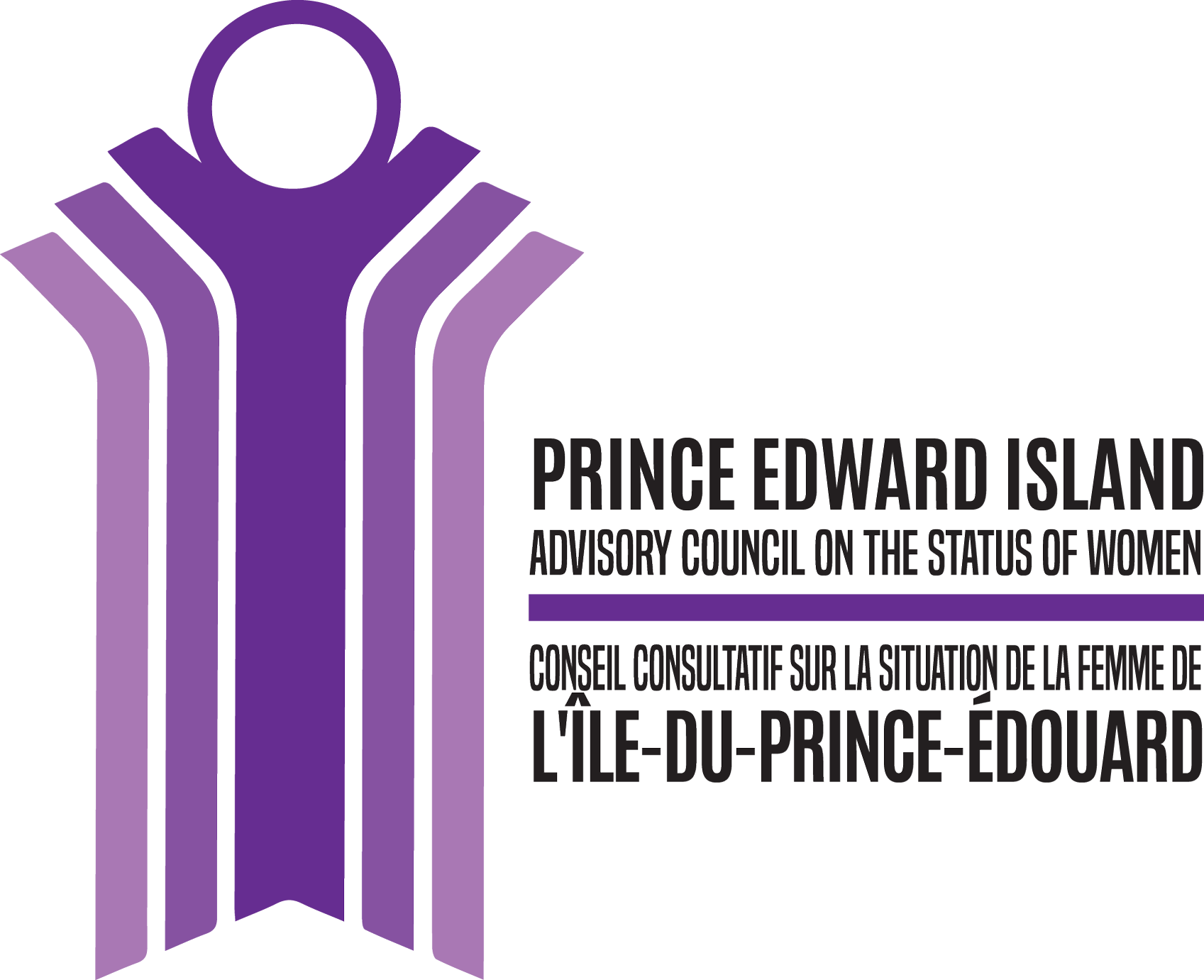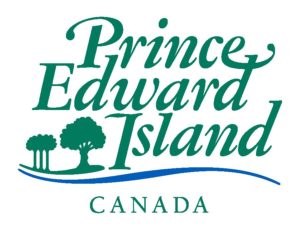
“Mexicans Harvesting Cabbage in Vernon Bridge PEI” Norah Pendergast Acrylic 2014 From the collection of the PEI Advisory Council on the Status of Women
Input on Proposed Temporary Foreign Workers Protection Legislation
PEI Advisory Council on the Status of Women
August 21, 2020
Download as PDF: Input on Proposed Temporary Foreign Workers Protection Legislation
The Prince Edward Island Advisory Council on the Status of Women (PEIACSW) is a nine-member, government‐appointed arms‐length government agency with a mandate to advise government and educate the public on matters that relate to the status of Prince Edward Island women.
Thank you for the opportunity to provide input into the consultation with respect to introducing Temporary Foreign Worker Protection Legislation for Prince Edward Island. The protection of Temporary Foreign Worker (TFW) rights, especially those with gender dimensions, has long been of interest to the Advisory Council on the Status of Women. Our engagement with TFWs and migrant worker rights has included seeking educational presentations on emerging issues for Council members, attending rallies and symposia, listening to and presenting among speakers on the issues, and engaging TFW women in International Women’s Day events, as organizers, speakers, and participants.
The Council’s 2018 Equality Report Card cites the following regarding the rights of temporary foreign workers:
There is much PEI could do to support the rights of migrant workers, who are present here in growing numbers. Many migrant workers on PEI are women. They are working far away from their families in order to support them financially. Most critically, PEI employment standards need to be updated – and then enforced – to protect migrant workers’ rights and meet their needs. They continue to face barriers to timely access to healthcare. Workers cannot get a health card if their work permit is six months or less, and are routinely living without a health card for several months while they wait for their permit to be renewed. Private insurance provided through workplaces usually does not cover essential services like pregnancy. A child who is born in Canada by a migrant worker will only get public health coverage if their mother has a health card, despite the child being a Canadian citizen. The Province is doing a good deal to support migrant workers’ paths to permanent residency and citizenship but could do more to lobby the federal government to lift restrictive policies. The lack of public transportation in communities where migrant workers live and work continues to isolate them from supports and services. (See http://www.peistatusofwomen.ca/wp-content/uploads/2020/04/acsw_erc18EN.pdf.)
PEIACSW members are very pleased that the Province of PEI is seeking feedback towards long‐overdue legislation to protect the rights of migrant workers. We have consulted with community advocates and experts to provide this feedback and are happy to support and reinforce recommendations you will receive from Cooper Institute, the Action Team for Migrant Workers Rights, and UPSE. We are grateful for the insights they shared with us for this submission.
Why Is Protection of Temporary Foreign Workers a Gender Issue?
The PEI Advisory Council on the Status of Women has a mandate to advise government on issues that affect the status of women, and migrant worker rights include many gender factors. Migrant workers of all genders face discrimination or barriers as a result of their immigration status. Women and gender minorities face additional risks of sex‐ and gender-based discrimination and barriers, including sexualized violence and harassment. Gender discrimination against women migrant workers is doubled and deepened when the workers are women of colour or women without English or French as their first or preferred language of communication. And, in fact, the women who come to PEI as migrant workers are almost exclusively women of colour for whom English or French is not a first language.
Regarding women migrant workers, a policy briefing note from CRIAW summarizing Canadian research findings concludes, “Women in temporary work programs often face low wages, poor conditions, and sexual and racial harassment. Many work long hours without overtime pay, lack access to health care, and either have difficulty accessing or do not qualify for settlement services.” (See “(Im)migrant Women in Canada: Challenges and Changes,” https://www.criawicref.ca/images/userfiles/files/P4W_BN_ImmigrantWomen.pdf.) This conclusion echoes what we have heard from women migrant workers in PEI and from the advocates who support them.
The COVID‐19 Context
As in so many other areas of the economy, women migrant workers have been affected by pandemic conditions more than their male counterparts. Across Canada, according to numbers from Immigration Canada, women made up 14.2% of temporary foreign workers in Canada during the first two quarters of 2020, compared to 18.5% in the same two quarters of 2019. There were 6,400 women working as Temporary Foreign Workers in Canada to the end of June 2020, compared to 9,555 from January to June 2019. (See “Temporary Residents: Temporary Foreign Worker Program (TFWP) and International Mobility Program (IMP) Work Permit Holders – Monthly IRCC Updates” https://open.canada.ca/data/en/dataset/360024f2‐17e9‐4558‐bfc1‐3616485d65b9.) These numbers represent a significant decrease in women migrant workers’ income, which is so important to their families’ survival that they travel far from home to earn it.
While the number of Temporary Foreign Worker Program work permit holders for caregiving is negligible in PEI at present, this is a significant category in other parts of Canada, and most TFWs in caregiving work are women. Prince Edward Island’s legislation to protect TFWs should proactively protect caregiving workers. A Feminist Economic Recovery Plan for Canada: Making the Economy Work for Everyone, recently released by the YWCA and GATE (Gender and the Economy) research team, notes that across Canada
paid care work tends to be done by Black, racialized and immigrant women. The pandemic has revealed the necessity of migrant workers to the care economy and to the economy more broadly, but these workers have largely been excluded from the pandemic response.
Their report puts forward two policy recommendations: to “consult organizations that support migrant worker caregivers in decision‐making for pandemic recovery and create an expedited path to permanent resident status for immigrant care workers so that they can access healthcare and worker protections on arrival” and to “provide personal protective equipment to migrant workers, conduct rigorous inspections on their working conditions, and ensure they have access to income supports.” (See https://www.feministrecovery.ca/.) These are policy recommendations we support.
Even in PEI, many Temporary Foreign Workers are in food industries, work that is deemed “essential” even under pandemic conditions. Outbreaks in food industries, including outbreaks affecting TFWs, reveal the vulnerability of these workers and underscore the need for protections that work not only in the best of times and circumstances but also in the worst of pandemic times.
It is notable in PEI that many migrant workers when they gain permanent resident status move from work in food industries into caregiving work and other essential but low‐paid work. This underscores the importance of temporary foreign worker protection legislation being continuous with strong employment standards and livable minimum wages for those who stay here and live here.
Guiding Principles
The principle guiding legislation to protect temporary foreign workers needs to be recognition and redress of the power imbalance between Canadian employers and migrant workers whose status in Canada, employment and work conditions, access to health care, and, often, housing and transportation are precariously placed in the hands of employers.
PEI must develop legislation to promote a change in attitude and culture in relation to temporary foreign workers: one which recognizes their human rights and their agency, and also employers’ responsibilities to provide for their needs as humans who exist for more than their labour. Legislation must prohibit both subtle and overt suggestions or attitudes (founded in a history of slavery and colonialism) that migrant workers are the property of employers.
To truly protect migrant workers, legislation will need to proactively encourage and help workers to navigate systems that are, literally and by definition, foreign to them. It is not enough for legislation to prohibit suppression of migrant workers’ voices or limits on whom they can talk to or meet with; it is not enough to allow them opportunities to complain about violations of their rights.
Protective legislation will need actively to require or mandate workers’ access to community advocates, information, supports, and assistance with services they are entitled to.
Recruitment Questions
- Should the Province create a licencing system for recruiters of TFWs?
- If a licencing system for recruiters is created, should any information be publicly available, and, if so, what information?
- Should a deposit or other form of security be required for recruiters of TFWs? If so, should it be permissible to use the deposit against administrative penalties?
In our view, yes, the Province should create a licencing system for recruiters of temporary foreign workers. The principles at stake are transparency and accountability, so as much information as reasonable should be publicly available. One crucial piece of information that should be available publicly is whether locally licensed recruiters are attached to international recruitment organizations and, if so, which ones. It would be helpful as well to know through publicly available data which recruiters are working with which industries and employers.
The most engaged and recognized expert in Canada on recruitment issues related to migrant workers is Fay Faraday of Osgoode Law School. We are persuaded by information she presented to PEI advocates in April 2017 at a forum on migrant workers’ rights, and we recommend government seek out her analysis and advice and follow it, particularly on recruitment questions. It is our understanding that Faraday recommends Nova Scotia legislation as the best model identifying which information from a recruiter registry should be made public.
There is a benefit to regulating recruiters in part to narrow or limit the pool of recruiters to reduce the risk to workers of working with unscrupulous or incompetent recruiters. We recommend that any registered recruiting firm should have on its staff at least one formally certified immigration consultant.
It seems reasonable to require that recruiters pay a deposit and that it be permissible to use the deposit against any administrative penalties.
Employer Registry
- Should there be a requirement for employers who hire TFWs to register with the Province?
- If employers are required to register, should any information be publicly available and, if so, what information?
- How often should employers register (for each new hire, for every LMIA approved)?
- Should employers be required to register prior to seeking an LMIA?
The PEIACSW supports legislation to include a requirement for employers who hire migrant workers to register with the Province. Again, the guiding principle is transparency and accountability, so a significant amount of information should be available publicly. Some of the information that would be valuable to have publicly available includes the following:
- The number of workers each employer hires year to year
- County of employment
- Type of work
- Demographics of workers (including gender)
- Country of origin
Much of this information is available at the federal level from Immigration, but locally tracked and published information would be helpful, to the extent it can be provided without violating the privacy of migrant workers. Of course, it is equally important not to use privacy as an excuse to protect employers from being accountable for offenses.
Public information from the employer registry should also include information about recent infractions against the TFW Protection legislation.
Some information may not need to be made public but needs to be more accessible across the levels of government. Even if not made public, information available to the federal government should be made available to the provincial government, and vice versa. For example, records of inspection of accommodation for migrant workers, which is federally mandated, should be easily and seamlessly available to provincial health officials.
Regarding the timing of employer registration, we encourage coordination between the federal and provincial governments to determine the best timing for registration. For example, if PEI legislation requires registration when employers apply for an LMIA, the process should be aligned with the waiting period for the LMIA. If it coordinates between the levels of government, then we recommend registration before applying for an LMIA and then yearly.
Record Keeping
- How long should employers and recruiters be required to maintain records?
It would seem reasonable to keep records for same period required by CRA for tax records: for a period of six years from the end of the last tax year they relate to.
Proactive Duties
- Should employers be mandated to provide information to TFWs on their rights and protections related to the workplace?
- Should there be rules related to employers to provide written copies of employment contracts to TFWs?
In our view, proactive duties must extend beyond giving people a piece of paper about their workplace rights and protections. Communication about rights should be required in person and interactive (with safe space for questions). Every employer is already obligated to post information about employment standards, and this has not proved to be sufficient to protect workers’ rights. In addition, many migrant workers are active in agriculture and agricultural workers are exempt from much labour legislation.
As TFW protection legislation is being developed, the time is overdue for a review of exemptions from employment standards legislation, occupational health and safety legislation, and other labour‐related legislation and policy.
Regarding employment contracts, it would be helpful for legislation to require clear language about both minimum and maximum hours of work, since a number of workers have reported misunderstandings about hours that could have been prevented through requirements of clarity in contracts. Contracts also require clear information about items workers are required to pay for as part of the conditions of their work. It is essential that no worker end up in debt to an employer for required equipment or other fees, particularly if they are not paid for enough hours to repay the debt.
Beyond clear communication, the key point related to protective legislation is enforceability of the rules and mechanisms for enforcement.
Administrative Penalties
- Should the legislation include the ability to issue administrative penalties?
It seems reasonable to us that the legislation should include the ability to issue administrative penalties.
Publication of Names of Violators
- Should names of violators of the legislation be published on the Province’s website?
It seems reasonable to us that violators of the legislation might have their names published on the Province’s website.
Publishing names acts as a good disincentive to exploiting migrant workers’ rights; however, it may also be beneficial to create incentives for violators to do better and restore their good name by making public their resolution of outstanding issues. It may also be beneficial to have a means of certifying publicly the names of employers in good standing with the legislative requirements.
Other Prohibitions
- Are there any particular behaviors or actions that should be prohibited in this proposed legislation that are not otherwise covered in other legislation that exists in the Province?
The concern that comes up most frequently in relation to migrant workers is overcrowding in housing and inappropriate accommodation. This is of particular concern during this time of COVID‐19. Housing is a human right and is a crucial part of protecting migrant workers’ health and rights. Housing is mandated to be inspected before workers arrive, but after they arrive, it is common for workers to be moved from place to place across the Island, following the work from crop to crop, field to field, or region to region. The cost of housing is largely unregulated, and there is a need for rent controls to ensure housing for migrant workers is reasonable and does not exceed the going rate in the community. In some cases, profiteering landlords have been proved to be associated with the employer (for example, as a stakeholder in the employer’s business), and such conflicts of interest must be eliminated. The PEIACSW advocates ongoing and rigorous inspection of employerprovided housing conditions for migrant workers, including evaluation of the fairness of rental rates in relation to space and amenities provided and local market conditions.
In this, as in other legislation, a complaint‐based system helps the most vulnerable workers the least. In the case of PEI residents with status, a complaint may result in the loss of employment. In the case of a migrant worker, whose status in Canada depends on their job, a complaint may result in dismissal and being sent home. Complaint‐based systems are already less accessible to women and gender minorities as a result of gender inequality. The PEIACSW advocates effective complaint processes that take gender and diversity into consideration to ensure gender‐responsive and inclusive procedures.
The other challenge we hear most often from migrant workers in our community is that the lack of Island‐wide public transit limits their ability to exercise their rights, to access healthcare or recreation, or to live with independence during their time in the community. The PEIACSW will continue to champion a full, fair, accessible Island‐wide public transit system.
For these and other reasons, a fundamental tool for protecting the rights of migrant workers is issuance of a provincial health card to temporary foreign workers as soon as they arrive in PEI. Especially in a time of pandemic, this protects not only workers but also the wider community. The PEIACSW recommends that PEI health cards be issued to all migrant workers when they arrive in PEI.
Clear and accessible pathways to permanent resident status are also important to protecting migrant workers’ rights, and especially those of women who often have caregiving ties to children, elders, and people with vulnerabilities on the other side of the world. PEI has increased its effectiveness in supporting migrant workers towards permanent residency in past years. The PEIACSW recommends that PEI continue and expand on efforts to support migrant workers who wish to establish permanent resident status and welcome and encourage their integration in PEI communities.
Because protecting migrant workers extends beyond employment standards, the PEIACSW sees the value and advantage in putting forward Temporary Foreign Worker Legislation as comprehensive stand‐alone legislation, rather than under the Employment Standards Act. That being said, the members and staff of the PEI Advisory Council on the Status of Women continue to look forward to participating in a comprehensive review of the Employment Standards Act when the current crisis situation permits and we can turn our attention to long‐term solutions and to well‐considered legislative changes that will serve Islanders during times of stability as well as of crisis.
Thank you again for the opportunity to provide feedback. We respectfully request more information about your plans for public consultation on the proposed temporary foreign worker protection legislation as they emerge.
Please let me know if you have any questions about this feedback.
Sincerely,
Debbie Langston, Chairperson
cc:
Hon. Natalie Jameson, Minister Responsible for the Status of Women
Michelle Harris‐Genge, Director, Interministerial Women’s Secretariat
Members and staff, PEI Advisory Council on the Status of Women


